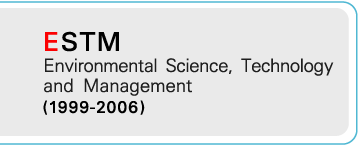| Arsenic is a natural metalloid element that is ubiquitously contaminated in many parts of the world. Epidemiological studies reveal association of arsenic exposure and neurological disorder both peripheral and central. Arsenic neurotoxicity has a broad range of adverse effects on human health, which are induced in part by inhibition of neurite outgrowth, a process that is critical during development, regeneration, differentiation, and response to injury. Insulin has been reported to promote neurite extension. Therefore, the present study investigated the effect of arsenic on neurite elongation in differentiated human neuroblastoma SH-SY5Y cells, and examined whether insulin could rescue neurons from impaired neurite outgrowth induced by arsenic and the signaling pathway involved in this action. Human neuroblastoma SH-SY5Y cells were differentiated by incubation with retinoic acid in order to make them express characteristics of mature neuron such as long neurite extension and branching. After 3 day incubation with retinoic acid, cells were treated with sodium arsenite treatment at 5 M for 1 to 3 days, or 0.1, 1, or 5 M for 5 days. The results showed that arsenic caused significant shortening of neurite in time and dose dependent manner indicating that arsenic induced neurite impairment in human neuroblastoma SH-SY5Y cells. This inhibitory effect of sodium arsenite was rescued by insulin as evidenced by prominently reduction of sodium arsenite-induced shortening of neurite extension in sodium arsenite and insulin co-treatment. It is interesting to note that in the present study, insulin was added to cells that were treated with sodium arsenite for 4 days which already exhibited prominent shortening of neurite extension hence indicating the neurite impairment effect of arsenic is reversible. Blocking PI3K or Akt by selective inhibitors canceled the action of insulin in attenuating sodium arsenite-inhibited neurite impairment. Inhibition of GSK3, mimicking an effect of insulin stimulation, did not attenuate the neurite impairment of sodium arsenite. These results indicate that activation of insulin signaling can rescue neurons from arsenic-induced neurite impairment, and active PI3K and Akt are required for this rescue action of insulin. Sodium arsenite decreased levels of active Akt phosphorylation, and SIRT1. Interestingly, these reductions were well correlated with the neurite impairment effect of sodium arsenite implicating that sodium arsenite may impair neurite through reduction of Akt and SIRT1. Taken together, the results from this study demonstrate that i) arsenic causes neurite impairment in human neurons ii) insulin can rescue arsenic-induced neurite impairment, and its rescue action requires active PI3K and AKt iii) arsenic may exert its neurite impairment through a mechanism involving reduction of signaling molecules downstream from insulin, PI3K/Akt/SIRT1. The findings from the present study raise the possibility of using insulin to combat arsenic neurotoxicity, particularly in children who are vulnerable to neurodevelopment problems.
แหล่งข้อมูล:
|
 Center of Excellence on Environmental Health and Toxicology (EHT)
Center of Excellence on Environmental Health and Toxicology (EHT)










